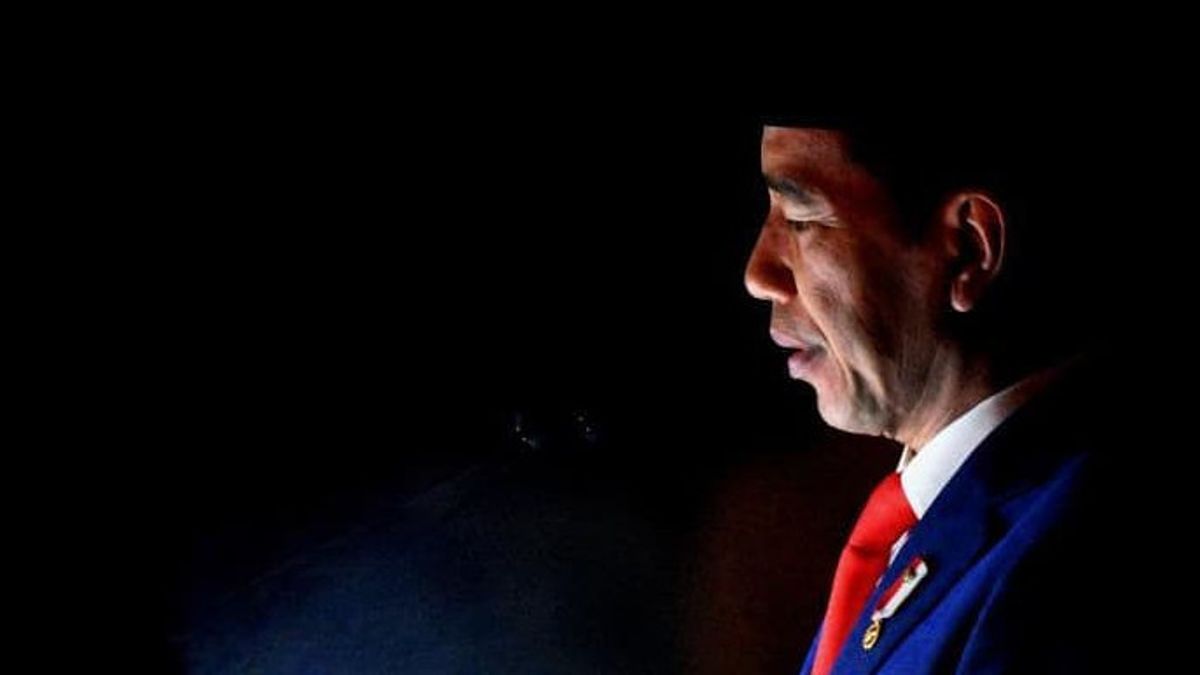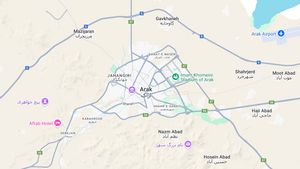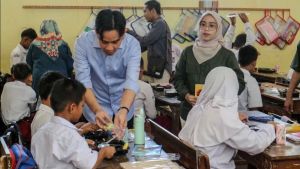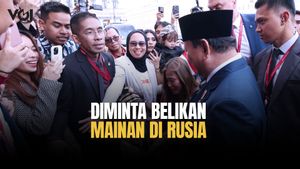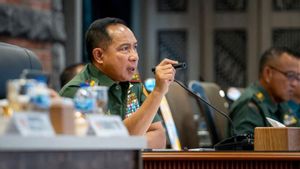JAKARTA - President Joko Widodo (Jokowi) is in the spotlight because of his statement about the difference between going home and returning home. Not a few netizens make jokes. Citizens feel that they need not only to open the Big Indonesian Dictionary (KBBI) more often to understand the meaning of the word, but also have to dive deeper into politics to understand the meaning behind the statement. Because, in politics, even the meaning of words is a tool of power.
In an interview with Najwa Shihab, Jokowi was faced with a question about the number of residents who 'stole' their homecoming. Jokowi responded to the question with the answer: If it is not going home, that is returning home.
Jokowi explained further. He said homecoming was an activity to return to his hometown before Eid. Meanwhile, going home is outside the context of the holiday. "Indeed working in Jabodetabek, there are no jobs here, so they go home. Because his wife's child is in the village," said Jokowi.
The President was not completely wrong. In fact, he fully understands the two differences in context. In terminology, going home and returning home do have differences, especially in context. We checked KBBI online and found the difference. According to the online KBBI:
Homecoming:
- Meaning: (sailing, going) to hicks (upstream, inland).
Context: From Palembang (homecoming) to Sakayu.
- Meaning: Returning to my hometown
Context: A week before Lebaran, many people (going home).
Back to hometown:
- Meaning: Returning to his hometown; Homecoming.
Context: He (returned to his hometown) after leaving the city.
The Palace Trap
"Laughing before laughing is forbidden," said the humorous trio of Warkop DKI (Dono, Kasino, Indro). So what happened then. The public was laughing. The President became a butt on social media. Given that this is a democracy, the public may laugh at the president's answer.
However, it is important to remember that in politics, the meaning of words is a tool of power. This kind of terminology game has long been a trick of the authorities, especially in tinkering with policies. Jokowi made it clear last night that his government is also practicing this game.
He said, there were two policies taken by his government to control the movement of people during this pandemic. First, the appeal is not to return to your hometown. Second, the ban on going home. If you depart from the findings of the KBBI, the terminology played by the Palace makes more sense. There are several dangers that must be anticipated from this game.
A political science researcher from the Indonesian Institute of Sciences (LIPI), Aisah Putri Budiarti, explained that the first danger is confusion. In pandemic conditions, the government should avoid policies that are full of terminological games. This is because the community needs clear and measurable guidelines to minimize the danger of transmission.
"In this context, going home or going home will both carry the risk of transmission. So, it should be, whether it is going home or returning home, although according to President Jokowi it has different meanings, but because of the risk (of transmission), it should be prohibited," said Puput - his nickname - to VOI, Wednesday, April 23.

Separately, political analyst from Voxpol Center Research and Consulting, Pangi Syarwi Chaniago criticized the terminology played by the government. In his eyes, there is something that the people must pay attention to from this game, namely about how the government has shifted the narrative of failing to deal with the pandemic to other issues that are far from the substance of controlling people's movements.
"This terminology game is a trap so that people no longer focus on discussing the substantial, but eventually get stuck in playing the terminology of going home and returning to their hometown. People themselves forget to criticize government policies and regulations that are inconsistent and wishy-washy," said Pangi.
Like Puput, Pangi also highlighted the dangers of confusion that could arise from Jokowi's statements. And again. The public should not be lost in Jokowi's answer, which according to Pangi is a high-level trap in the form of a joke.
"It becomes a funny joke. Later (the community) will be banned by officers in the field, they have a reason, 'we don't go home, sir, we just go back to our hometown. It's messy, if you go home you can go home, you can't go home," said Pangi.
"Luhut alone with Jokowi can interpret different messages, how can the people not bother about the terminology of going home and returning home?"
Pangi
Political tools
If you're laughing, then it's time to fight back. Society needs to hone criticism. With this capital, the public can voice their concerns over policies taken by the government that are more targeted. No need to take to the streets for now maybe. Building a sane social media ecosystem is enough.
"Of course, the government must also be responsive to this public view and respond to it by evaluating and correcting policies that are considered controversial and causing public confusion," said Puput.
According to Puput, high awareness to "fight" is important to grow. This kind of play on terminology is disastrous. Puput highlights some of the regulations and policies created through this play on terminology.
Law (UU) Number 11 of 2008 concerning Information and Electronic Transactions (ITE), of course, is the most obvious example of how the terminology game was practiced by the previous regime to form and make this law a rubber character. Another characteristic of rubber in the formation of laws can also be found in various articles of the Omnibus Law on the Employment Creation Law.

Puput explained that politically, the terminology game in making policies or regulations is usually deliberately done to "accommodate various interests while at the same time reducing the possibility of controversy or public criticism, hastening policy-making, and others," said Puput.
Despite all the dangers of playing this terminology, Puput saw Jokowi's answer last night as a true mirror of his capacity and the regime he leads. A calculator to calculate how credibly the government administers the country.
"So far, in many other aspects, government policies are often multi-interpretative and there is weak coordination between ministries or government agencies. So, the COVID-19 case makes it very clear," said Puput.
The English, Chinese, Japanese, Arabic, and French versions are automatically generated by the AI. So there may still be inaccuracies in translating, please always see Indonesian as our main language. (system supported by DigitalSiber.id)
